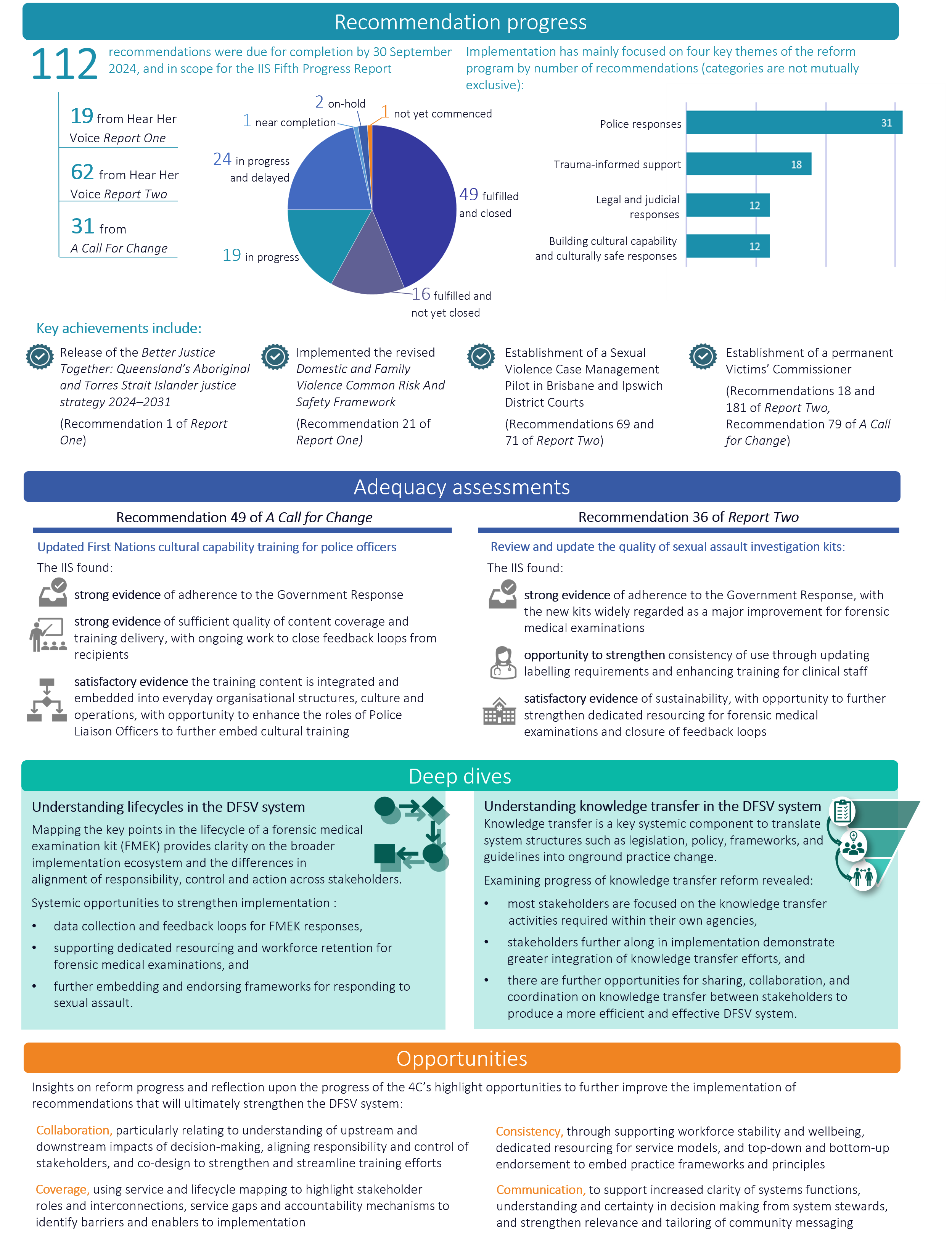Fifth progress report
The Office of the Independent Implementation Supervisor—Women’s Safety and Justice Taskforce Reforms: Biannual Progress Report 5 (November 2024) considers the progress of the Queensland Government Response to the two Hear her voice reports by the Women's Safety and Justice Taskforce and The Independent Commission of Inquiry into Queensland Police Service responses to domestic and family violence (A Call for Change) for the period 1 April 2024 to 30 September 2024.
Of the 112 recommendations assessed in this period, 65 have been completed (with 49 fulfilled and closed and 16 fulfilled and not yet closed). Of the remaining 47 recommendations, 19 are in progress, 24 are in progress and delayed, 2 are on-hold, 1 is near completion, and 1 has not yet commenced.

The fifth progress report includes an adequacy assessment of two recommendations: the updated QPS First Nations cultural capability training (recommendation 49 of A Call for Change) and the updated sexual assault investigation kits (recommendation 36 of Report Two).
The OIIS also conducted deep dives on lifecycles within the DFSV system (using forensic medical examination kits as an example) and understanding knowledge transfer within the DFSV system.
This involved significant consultation with QPS and with the frontline services across Queensland. The Office of the Independent Implementation Supervisor (OIIS) consulted with stakeholders from several locations across Queensland to inform this report. This included Rockhampton, Gladstone, Mount Isa, Townsville, Cairns, Gold Coast, Toowoomba, Ipswich, Brisbane and Thursday Island.
The findings from the adequacy assessments and deep dives are outlined in detail in the fifth progress report and a summary of each is provided on our progress snapshots page.
